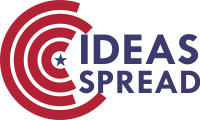Corpus-Driven Translation Studies and Exploration from the Perspective of Ecolinguistics
Abstract
Utilizing a corpus, this paper delves deeply into the intrinsic connection between translation and ecolinguistics. Through meticulously constructing a corpus comprising diverse source texts and their corresponding translated texts, and employing scientific methods such as context analysis, the study comprehensively explores ecolinguistic issues in translation. The research reveals that translators consider the language habits, cultural backgrounds, and ecological contexts of the target language when dealing with vocabulary related to the ecological environment. The translated texts not only carry the ecological environmental information of the source texts but also reflect the translator’s ecological awareness to a certain extent. This study provides a fresh perspective and empirical evidence for the crossover integration of translation studies and ecolinguistics, facilitating the further development of interdisciplinary research.
Downloads
References
Bryson, B. (2012). A short history of nearly everything. Anchor Canada.
Goddard, C., & Wierzbicka, A. (2013). Words and meanings: Lexical semantics across domains, languages, and cultures. OUP Oxford.
Gong, H. (2019). A corpus-based critical ecological discourse analysis of corporate annual environmental reports: China Three Gorges Corporation as an example (Master's thesis). University of Helsinki.
Kravchenko, A. V. (2016). Two views on language ecology and ecolinguistics. Language Sciences, 54, 102-113. https://doi.org/10.1016/j.langsci.2015.09.010
L'Homme, M. C. (2020). Lexical semantics for terminology.
McEnery, T. (2019). Corpus linguistics. Edinburgh University Press.
Monk, C. (1999). Christopher Gair, Complicity and resistance in Jack London's novels: From naturalism to nature (Lewiston, New York: Edwin Mellen Press, 1997). Journal of American Studies, 33(3), 519-586.
Newmark, P. (2003). A textbook of translation.
Niemelä, P. (2014). Nature and sustainable development-related vocabulary in Finnish upper secondary school English textbooks (Master's thesis).
Riemland, M. (2024). Language power relations and linguistic patterns in translation: A multilingual, corpus-based investigation (Doctoral dissertation, Dublin City University).
Sidiropoulou, M. (2004). Linguistic identities through translation (Vol. 23). Rodopi.
Steffensen, S. V., & Fill, A. (2014). Ecolinguistics: The ecology of language and science: Special issue of Language Sciences.
Steffensen, S. V., & Fill, A. (2014). Ecolinguistics: The state of the art and future horizons. Language Sciences, 41, 6-25. https://doi.org/10.1016/j.langsci.2013.12.003
Tachmyradova, M. A., & Nurymova, K. O. (2020). Conversion is the way of word formation. In Современные тенденции развития науки и образования (pp. 276-278).
Thompson, K. (2012). Metaphor in Metamorphosis: Towards comprehensive translation of Chinese figurative language.
Venuti, L. (2012). Translation changes everything: Theory and practice. Routledge.
Weisser, M. (2015). Practical corpus linguistics: An introduction to corpus-based language analysis. John Wiley & Sons.
Wiener, G. (Ed.). (2014). Wildness in Jack London's The Call of the Wild. Greenhaven Publishing LLC.

This work is licensed under a Creative Commons Attribution 4.0 International License.
Copyright for this article is retained by the author(s), with first publication rights granted to the journal.
This is an open-access article distributed under the terms and conditions of the Creative Commons Attribution license (http://creativecommons.org/licenses/by/4.0/).









1.png)









1.png)











